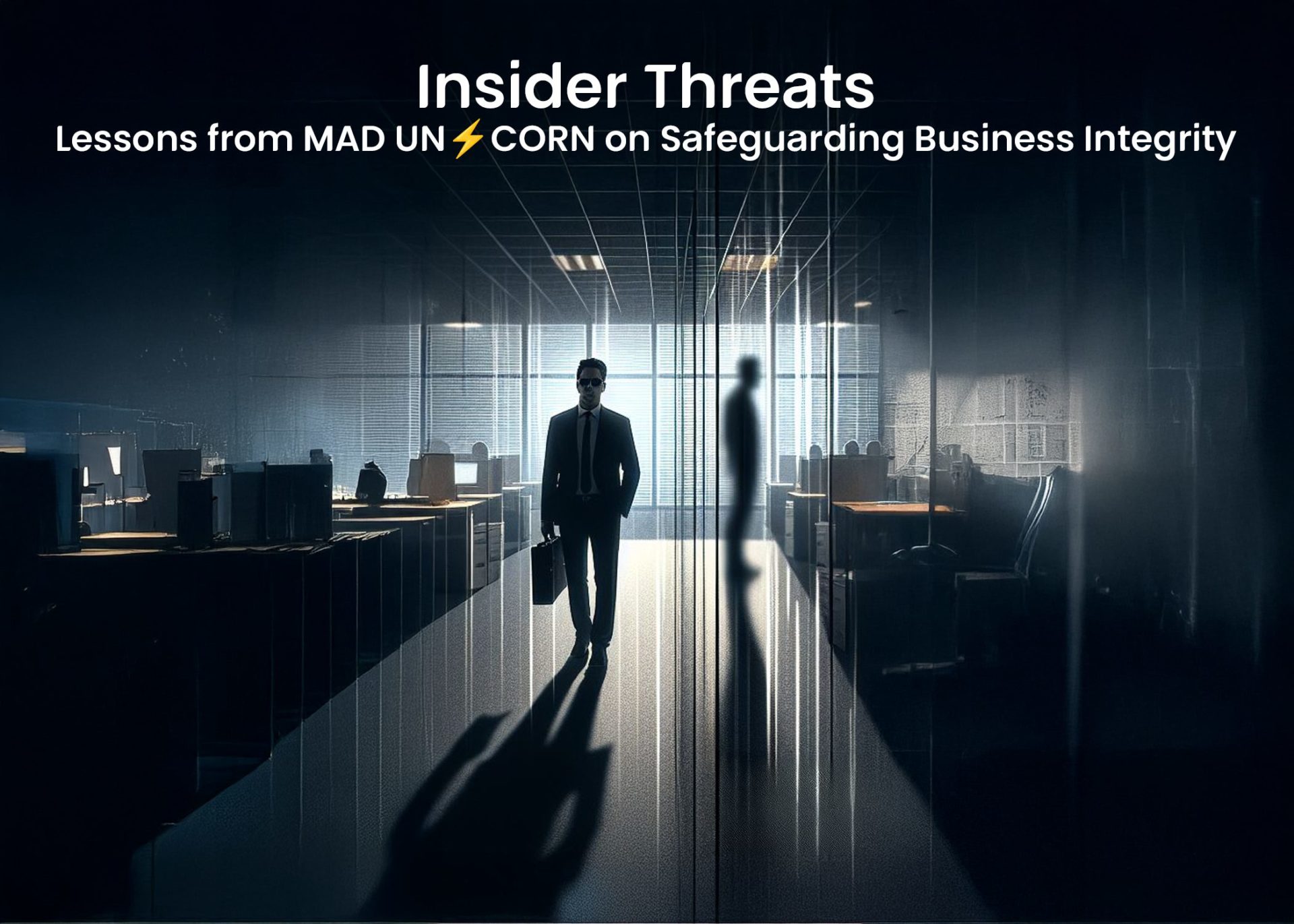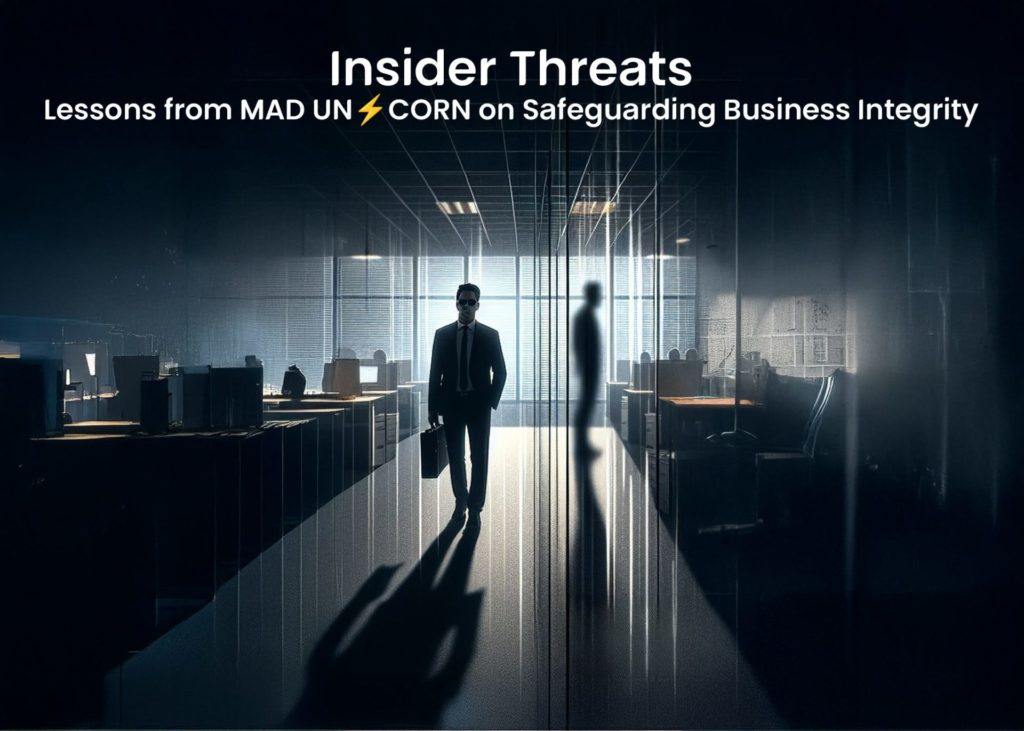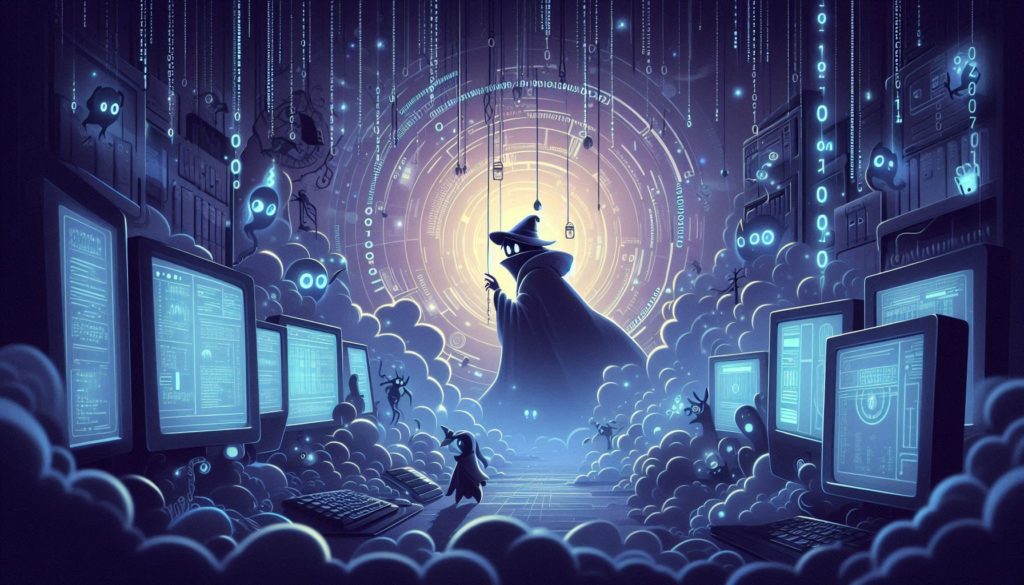In the Thai Netflix’s series MAD UNICORN (สงครามส่งด่วน), audiences are drawn into the high-stakes world of logistics startups, where ambition, betrayal, and corporate espionage collide. At the heart of the story is Santi, a visionary entrepreneur whose journey is derailed not by external competitors, but by trusted insiders. This narrative offers a compelling lens through which to examine one of the most pressing challenges in modern business: insider threats.
Understanding the Invisible Enemy
Insider threats arise when individuals with legitimate access—employees, contractors, or partners—misuse their privileges, either maliciously or negligently. Unlike external cyberattacks, these threats are harder to detect and often more damaging due to the inherent trust placed in insiders.
In MAD UNICORN, Santi’s downfall begins when competitors exploit his own team members, turning them into informants.
This mirrors real-world cases such as the Tesla data breach in 2018 and Edward Snowden’s disclosure of classified NSA information. Studies show that insider threats account for nearly 60% of cybersecurity incidents, with average damages exceeding $15 million per breach.
Industries at Risk
Sectors reliant on real-time data and proprietary algorithms—like logistics, healthcare, and finance—are particularly vulnerable. Leaks of operational strategies or customer data can lead to severe financial and reputational consequences.
Mitigation Strategies
To combat insider threats, organizations must adopt a multi-layered defense strategy:
-
Zero Trust Architecture – Trust no user or device by default; verify continuously.
-
Behavioral Analytics – Use AI to detect anomalies in user behavior.
-
Segregation of Duties – Prevent excessive control by requiring multiple approvals.
-
Data Loss Prevention (DLP) – Monitor and restrict sensitive data transfers.
-
Security Training – Foster awareness of insider risks and ethical conduct.
-
Robust Offboarding – Immediately revoke access upon employee exit.
The Human Factor
Technology alone cannot eliminate insider threats. As MAD UNICORN illustrates, organizational culture plays a pivotal role. Employees who feel valued and aligned with company goals are less likely to act against them. Transparent communication, ethical leadership, and a culture of accountability are essential to building internal resilience.
Conclusion
The cautionary tale of MAD UNICORN underscores a vital truth: trust must be balanced with vigilance. Businesses must not only invest in cybersecurity tools but also nurture a culture that prioritizes integrity and awareness. In doing so, they can defend against the invisible enemy within and secure their path to sustainable success.
Facebook
Twitter
LinkedIn







